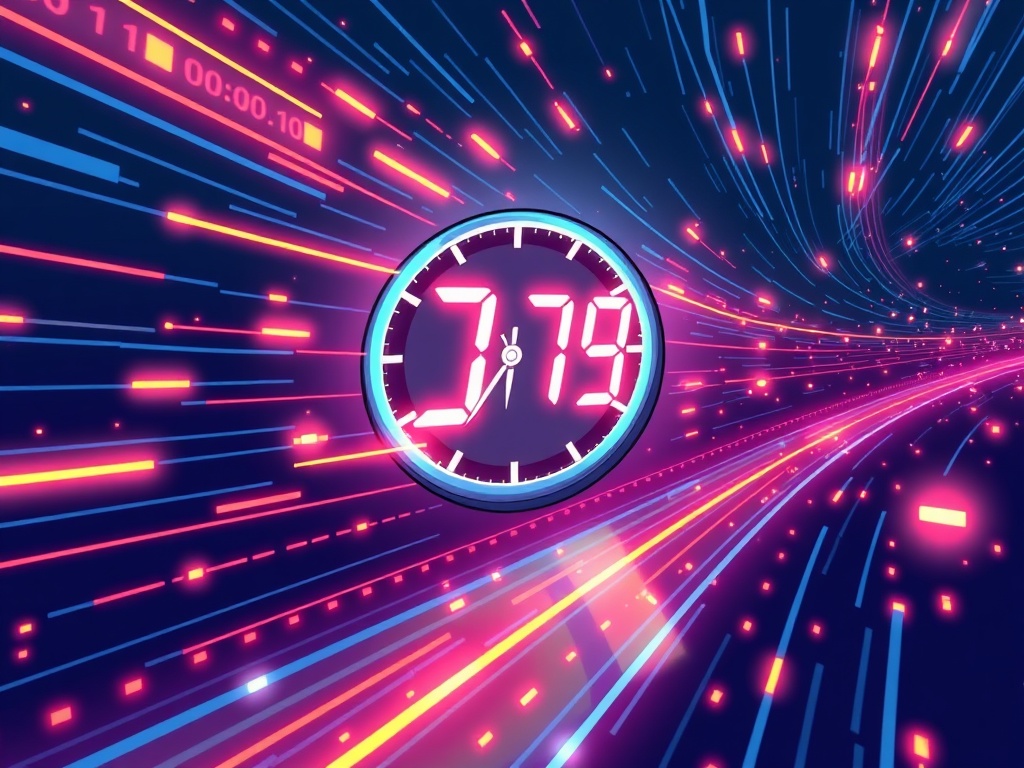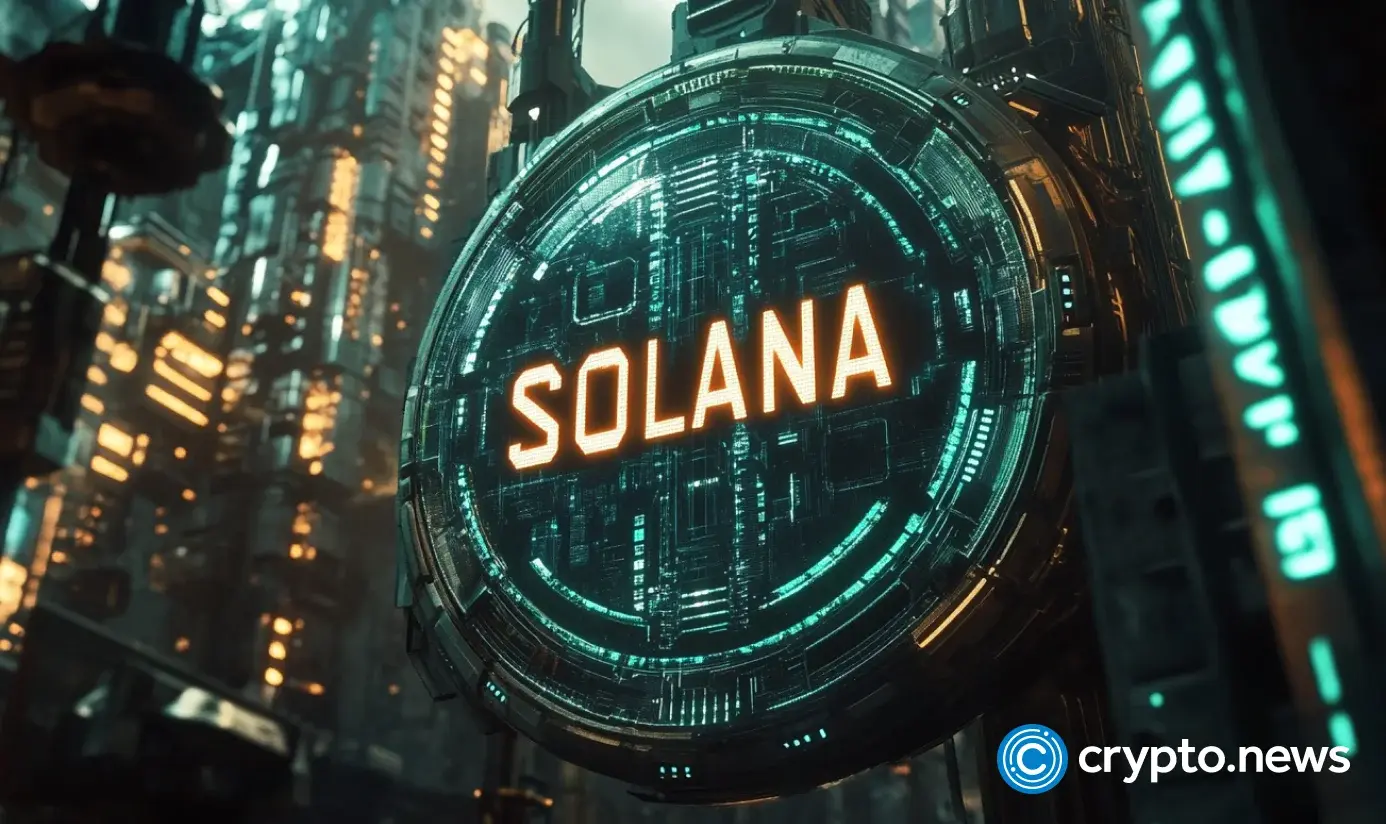Solana Block Confirmation Time: A Revolutionary Leap to 150ms
BitcoinWorld
Solana Block Confirmation Time: A Revolutionary Leap to 150ms
The Solana community has just made a groundbreaking decision. They overwhelmingly approved governance proposal SIMD-0326, known as Alpenglow. This isn’t just a technical tweak; it’s a monumental shift. Once implemented, the Solana block confirmation time is set to plummet from 12.8 seconds to an astonishing 150 milliseconds. Imagine the impact on network speed and user experience – it’s truly revolutionary.
What’s Changing with Solana Block Confirmation Time?
The approval of proposal SIMD-0326, with a resounding 99.6% community vote, signals a new era for the Solana network. This pivotal change will dramatically reduce the time it takes for a transaction to be officially confirmed on the blockchain. Currently, users experience a waiting period of approximately 12.8 seconds.
However, thanks to Alpenglow, this wait will shrink to an almost imperceptible 150 milliseconds. This is not a minor adjustment; it represents an over 85x increase in confirmation speed. Such a significant improvement directly impacts the responsiveness and efficiency of every interaction on the Solana blockchain.
Why Does Faster Solana Block Confirmation Time Matter?
This dramatic reduction in Solana block confirmation time isn’t just a number; it translates directly into tangible benefits for everyone using the network. It addresses one of the core challenges in blockchain adoption: speed and user experience.
- Enhanced User Experience: Transactions will feel virtually instantaneous. Whether you’re swapping tokens, buying an NFT, or interacting with a decentralized application, the lag will be almost eliminated. This makes the network feel incredibly responsive and intuitive.
- Boosted dApp Performance: Decentralized applications built on Solana will operate with unprecedented fluidity. Imagine gaming, financial platforms, or social applications running as smoothly as their centralized counterparts, but with all the benefits of decentralization.
- Greater Scalability: This upgrade further solidifies Solana’s position as a leading high-throughput blockchain. It allows the network to handle an even larger volume of transactions more efficiently, preparing it for mass adoption.
- Increased Developer Appeal: A faster, more reliable network is inherently more attractive to developers. This can foster greater innovation and encourage more projects to build on Solana, expanding its vibrant ecosystem.
Ultimately, this move makes Solana a more compelling platform for a wider range of applications and users.
The Technical Nuances Behind Solana’s Speed Boost
Achieving such a significant cut in Solana block confirmation time isn’t magic; it’s the result of clever and sophisticated engineering. The Alpenglow proposal specifically targets optimizations within Solana’s unique Tower BFT (Byzantine Fault Tolerance) consensus mechanism. This innovative approach is key to how Solana processes transactions.
Essentially, the upgrade refines how validators, the nodes that secure the network, reach agreement on the state of the blockchain. It streamlines the communication and validation steps, ensuring that blocks are finalized with greater agility. This means the network can confirm transactions faster without compromising the robust security and decentralization that are fundamental to Solana.
What Challenges Might Arise from This Solana Block Confirmation Time Upgrade?
While the prospect of a faster Solana block confirmation time is undeniably exciting, such a significant network upgrade requires careful consideration and execution. Implementing changes of this magnitude can sometimes introduce new complexities.
For instance, there might be increased demands on validator hardware or network bandwidth to maintain optimal performance under the new, faster confirmation schedule. The community and developers will need to vigilantly monitor the network post-implementation for any unforeseen challenges or performance bottlenecks. However, given the rigorous testing and overwhelming community consensus behind SIMD-0326, the Solana ecosystem is well-prepared to navigate these potential hurdles and ensure a smooth transition.
The approval and upcoming implementation of SIMD-0326 mark a truly pivotal moment for Solana. This dramatic reduction in Solana block confirmation time underscores the network’s unwavering commitment to innovation, scalability, and delivering an unparalleled user experience. It positions Solana even more strongly in the competitive blockchain landscape, setting new benchmarks for speed and efficiency.
This move isn’t just about making the network faster; it’s about pushing the boundaries of what’s possible in decentralized technology. The future looks incredibly bright for Solana users and developers alike, promising a more fluid, responsive, and powerful blockchain experience that could reshape how we interact with digital assets and applications.
Frequently Asked Questions (FAQs)
Q1: What is SIMD-0326 (Alpenglow)?
A1: SIMD-0326, also known as Alpenglow, is a governance proposal passed by the Solana community. Its primary goal is to significantly reduce the network’s block confirmation time, enhancing overall speed and efficiency.
Q2: How much will the Solana block confirmation time be reduced?
A2: Once implemented, the Solana network’s block confirmation time is expected to decrease dramatically from 12.8 seconds to just 150 milliseconds.
Q3: What are the main benefits of this faster confirmation time?
A3: The key benefits include an enhanced user experience with near-instant transactions, improved performance for decentralized applications (dApps), greater network scalability, and increased appeal for developers looking to build on Solana.
Q4: How does this change affect network security?
A4: The technical optimizations are designed to achieve faster confirmation times without compromising Solana’s robust security or decentralization. The network’s consensus mechanism is being refined for efficiency, not weakened.
Q5: When will these changes be implemented?
A5: While the proposal has passed, the exact implementation timeline will depend on the development and deployment phases. The community will be updated as progress is made.
Q6: Is this the fastest any blockchain has ever been?
A6: While many blockchains strive for speed, a 150ms block confirmation time places Solana among the very fastest in the industry, significantly outperforming many established networks.
Did you find this deep dive into Solana’s incredible speed upgrade insightful? Share this article with your friends, colleagues, and fellow crypto enthusiasts on social media to spread the word about this monumental leap forward for the Solana network!
To learn more about the latest Solana block confirmation time advancements, explore our article on key developments shaping Solana‘s network performance.
This post Solana Block Confirmation Time: A Revolutionary Leap to 150ms first appeared on BitcoinWorld and is written by Editorial Team
You May Also Like

Solana Company ramps up SOL treasury holdings to $525 million

Explore Significant Moves in the Crypto World Today
